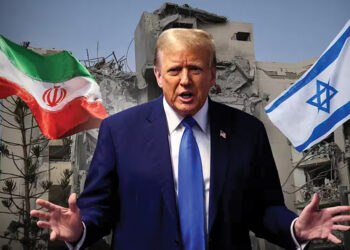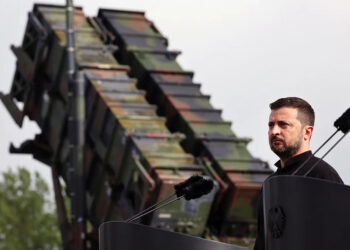While the world’s most prestigious opera houses—Covent Garden, La Scala, the Vienna State Opera—competed to host Paata Burchuladze’s 70th birthday celebration, the great Georgian bass insisted on one thing: “I must turn 70 in my homeland.” But in a baffling display of institutional and political neglect, the Tbilisi Opera and Ballet Theater refused to provide a stage for Georgia’s most internationally acclaimed opera singer. Teona Jorbenadze’s request for the theater’s stage on May 30, 2024, was met with silence. Not even an explanation, let alone a counteroffer.
A Maestro Without a Stage—But Not Without His People
For decades, Burchuladze’s profound bass voice has resonated across the most legendary stages of the world. His performances of Boris Godunov and Mefistofele were not merely roles; they were seismic cultural moments. He was not just a singer, but an ambassador of Georgia’s artistic spirit, placing the country firmly on the global operatic map. One might assume that such a monumental figure would be celebrated without hesitation by his homeland’s most prestigious opera venue. After all, in 2015, for his 60th birthday, the Tbilisi Sports Palace was filled to capacity with thousands of admirers. What has changed in a decade?
It is that Burchuladze’s influence in Georgia extends beyond music. In 2016, he entered the political arena, running in Georgia’s parliamentary elections. Though his campaign was unsuccessful, he remained a vocal opponent of the ruling Georgian Dream party. In December 2024, he organized a protest of elderly citizens—grandmothers and grandfathers—against police violence, proving that his voice carries weight not only on the opera stage, but also in the country’s social and political life.
And the people of Tbilisi made their own decision. On February 12, 2025, a procession moved from the Tbilisi Philharmonic Hall to the Parliament, commemorating the 70th birthday of Paata Burchuladze. Along the way, in front of the Tbilisi Opera and Ballet Theater, a musical performance took place where music lovers could stage a symbolic act of defiance: stopping in front of the theater and letting music fill the air of Tbilisi.
An Opera for the Streets
What does it mean when an internationally acclaimed opera singer is denied a stage in his homeland? In a world where culture is increasingly weaponized by political forces, Burchuladze’s concert was more than just a birthday celebration—it was an act of resistance. It asked the question: who owns art? The institutions that gatekeep it, or the people who create and cherish it?
The opera house has always been more than just a venue for music. It has historically served as a stage for political power, national identity, and ideological contestation. From La Scala in Milan, which was a rallying point for Italian unification in the 19th century, to the Bolshoi Theater, long a symbol of Soviet cultural dominance, grand opera institutions are not just buildings—they are mirrors of the political forces that control them.
By moving the 70th birthday celebration to Rustaveli Avenue, the heart of Tbilisi’s political life, Burchuladze and his supporters engaged in an act of cultural defiance. The choice of location transformed the concert from a celebration into a statement. In doing so, it aligned with a broader historical pattern: when institutions close their doors, artists take to the streets.
The Democratization of Opera
Opera, once the preserve of aristocrats, has always wrestled with its elitist reputation. But street performances, from Maria Callas’s spontaneous arias outside La Scala to the makeshift concerts of protest movements worldwide, challenge the notion that high culture belongs only within gilded walls.
Burchuladze’s anniversary concert in an open, public space followed this trajectory. It was reminiscent of the performances given by tenor Placido Domingo in public squares and of the ‘Opera for the People’ initiatives seen in Latin America, where grand arias are sung in city streets rather than in grand halls. In Georgia, where folk traditions deeply intertwine with national identity, relocating an operatic celebration from an institutional stage to the heart of the city reclaimed music for the public sphere. For one evening, Rustaveli Avenue was not just a street; it was an opera house. And Georgia once again witnessed the profound truth that music, when removed from gilded halls, can become the voice of a nation.
By Ivan Nechaev














